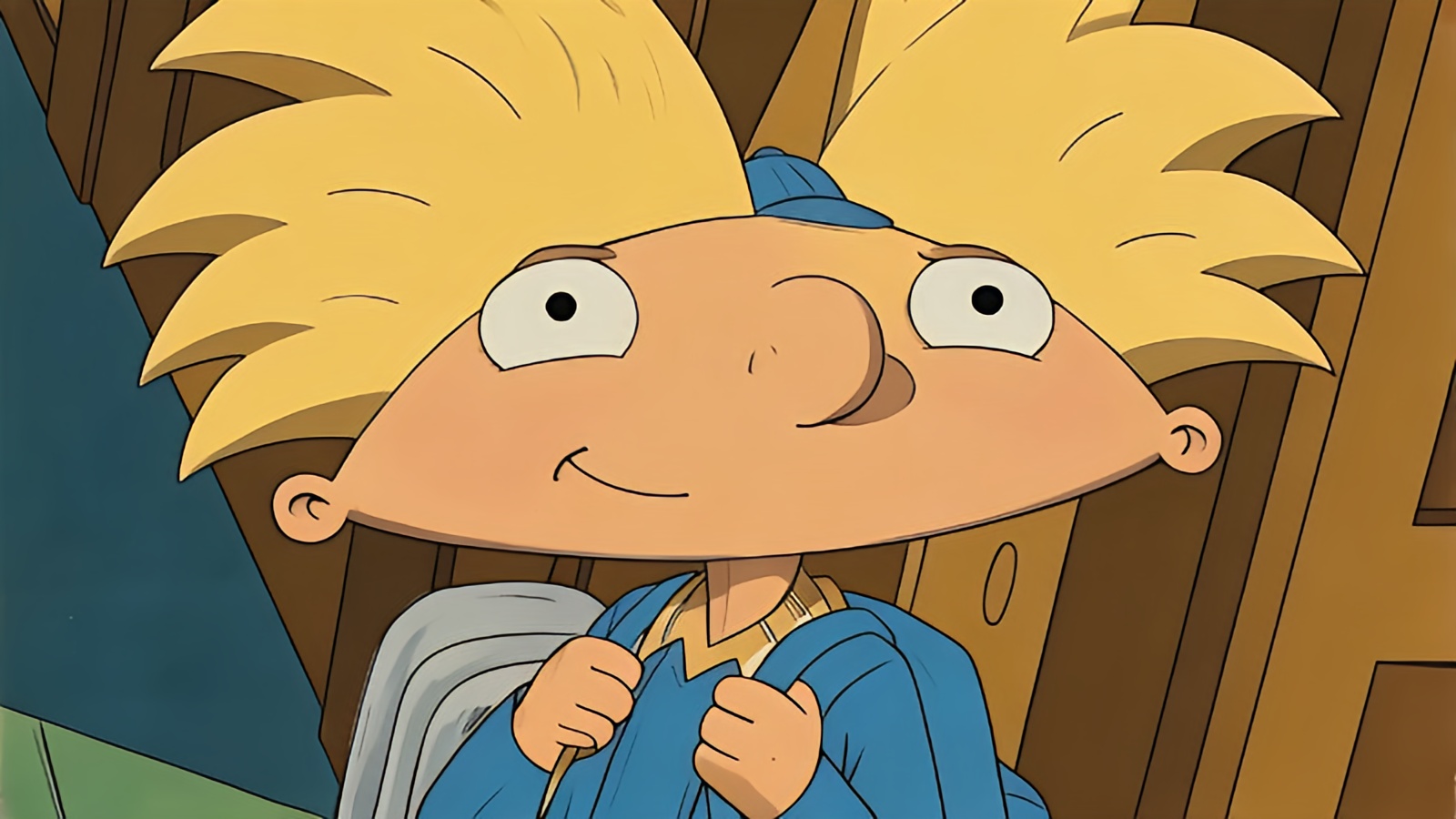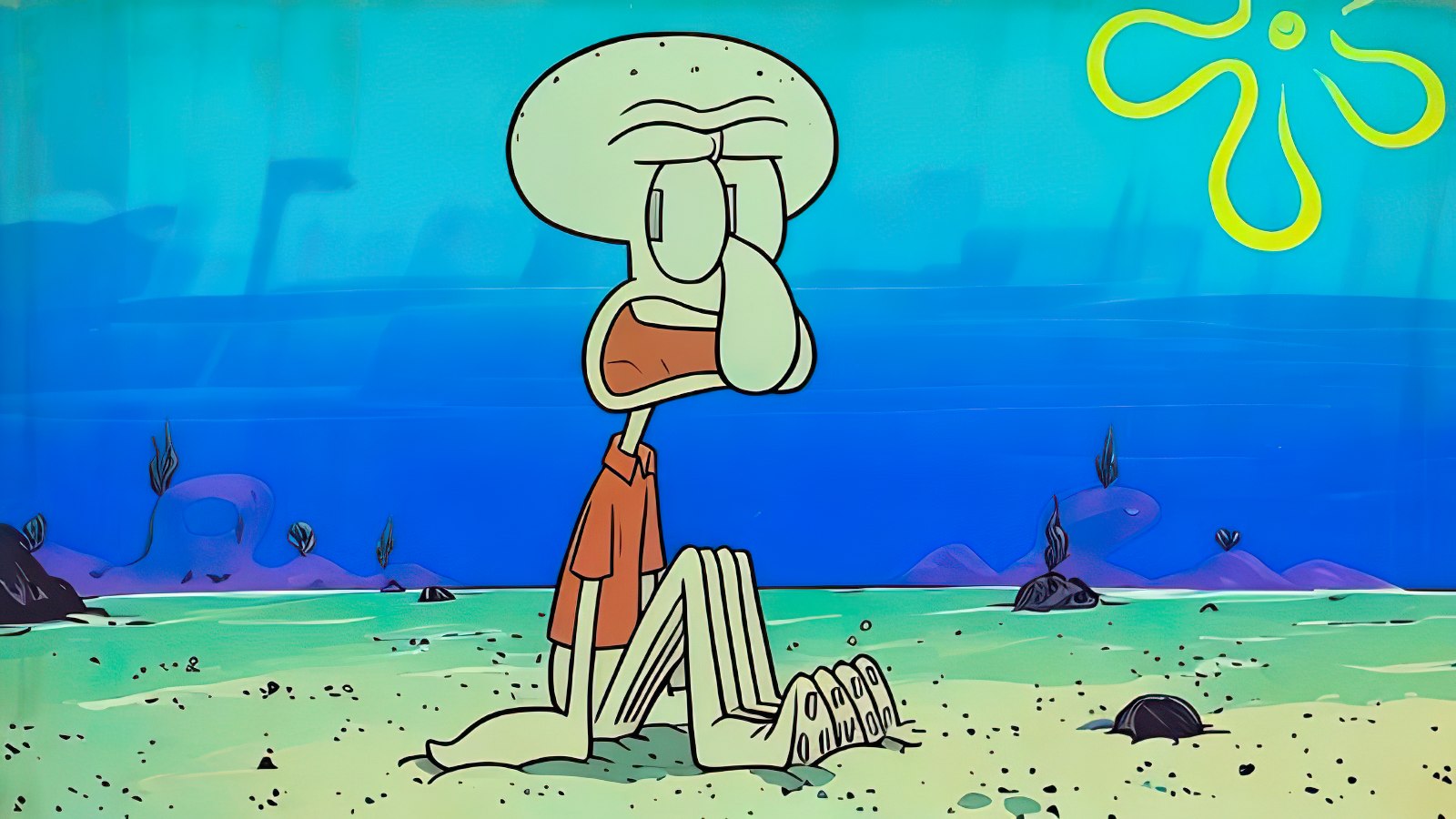In the vast cartoon jungle of the 90s, where every character shouted for attention, ran from monsters, or transformed into superheroes with catchphrases and capes, there stood one quiet, football-headed kid who didn’t need to raise his voice to make a difference. Arnold, the calm in the chaos of Hey Arnold!, was never the loudest or flashiest, but he was always the heart. In a city brimming with oddballs, dreamers, and secret crushes, Arnold was the quiet hero every ’90s kid looked up to—even if they didn’t realize it at the time.
He didn’t punch bullies or fly over buildings. Arnold’s superpower was empathy. He listened when others talked, helped when no one else would, and understood people in a way that felt almost magical. He wasn’t trying to be the hero. He just was. Let’s take a walk through the sunset-lit streets of Hillwood and revisit Arnold’s best moments as the quiet hero who made a generation believe that kindness was cooler than any superpower.
Saving Pigeon Man
The tale of Pigeon Man might be the most iconic episode in Hey Arnold! history—and for good reason. The moment Arnold meets Vincent, a misunderstood recluse who lives among the pigeons on a rooftop, we know we’re in for more than a typical cartoon subplot. Where other kids saw a weirdo, Arnold saw someone who needed a friend. And he didn’t ask why Pigeon Man was “strange” or try to change him. He simply listened.
When a prank by bullies leads to Pigeon Man’s sanctuary being destroyed, Arnold doesn’t just feel bad—he helps rebuild what he can and encourages Vincent to trust again. The episode ends with one of the most poignant scenes in the series: Pigeon Man flying off into the sky with his birds, leaving Arnold (and all of us) standing in awe. It wasn’t about saving the day—it was about understanding someone the world had forgotten.
Standing Up for Helga (Without Knowing It)
Helga Pataki spent most of her life oscillating between tormenting Arnold and writing secret love poems to him in her closet. But one of Arnold’s most heroic traits was how often he unknowingly helped Helga just by being himself.
In the episode “Helga on the Couch,” we dive into Helga’s emotional backstory. It’s Arnold who unknowingly serves as her emotional anchor—the first person to show her kindness on a rainy day when she felt invisible. That one umbrella-sharing moment left such an imprint on her soul that she dedicated years of secret affection to him, sculpting Arnold-shaped shrines and reciting poetic odes that would make Shakespeare blush.
Arnold didn’t know he’d saved her. He just did what came naturally. Sometimes the quietest gestures echo the loudest in people’s hearts.
Helping Mr. Hyunh Find His Daughter
In what is easily the most emotional episode of Hey Arnold!, we find out that Mr. Hyunh, one of the boarders at Arnold’s grandparents’ house, had a heartbreaking past. During the Vietnam War, he was forced to give up his baby daughter in order to get her to safety in the United States. He came to America hoping to reunite with her someday.
Arnold learns this and, without hesitation, takes it upon himself to reunite Mr. Hyunh with his long-lost daughter. With the help of a radio DJ, a Christmas miracle unfolds. As “Silent Night” plays softly in the background, Mr. Hyunh opens his door to find Mai, his daughter, standing there. There are no explosions or flashy surprises—just quiet tears, soft hugs, and the kind of emotional storytelling that had even adults reaching for tissues.
Arnold never made the moment about himself. He didn’t expect praise. He just wanted someone to be whole again. That’s what quiet heroes do.
Making Friends with Stoop Kid
“Stoop Kid’s afraid to leave his stoop!” may have started as a cruel playground chant, but it became one of Arnold’s defining episodes as a character. Everyone mocked Stoop Kid, a neighborhood legend who supposedly never stepped off his front stoop. But Arnold? Arnold was curious.
Instead of laughing, Arnold asked questions. He brought Stoop Kid food, talked to him, got to know him. And eventually, Arnold helped Stoop Kid see that he wasn’t trapped—that his stoop didn’t define him. With a triumphant leap, Stoop Kid finally stepped into the world, yelling and chasing the mailman with confidence.
It was Arnold’s patience, not pressure, that sparked that change. By treating a joke of a character with dignity, Arnold helped Stoop Kid find his courage. A small step off a stoop became a giant leap in the name of empathy.
Giving Eugene a Real Birthday
Eugene—the lovable unluckiest kid in Hillwood—had birthdays that were disasters year after year. So when Arnold accidentally ruins yet another of Eugene’s special days, he decides to make things right. Arnold plans a birthday bash so epic, so Eugene-proof, that nothing could go wrong.
Of course, everything does go wrong. But in true Arnold fashion, he doesn’t give up. He goes above and beyond to make sure Eugene feels loved, even if it means dressing like a clown and suffering a series of slapstick injuries. In the end, Eugene tells him it was the best birthday ever—not because everything was perfect, but because Arnold tried so hard.
That’s the essence of Arnold. He knew that effort mattered more than outcomes, and that sometimes being a hero is as simple as showing up for someone—even if the party balloons are popping and the cake’s on fire.
Believing in Dino Spumoni
Dino Spumoni was a washed-up crooner with a temper, a toupee, and a tragic sense of showbiz self-worth. Most kids would write someone like him off. But Arnold believed in comebacks, second chances, and redemption arcs.
When Dino fakes his death (as you do), it’s Arnold who talks him down from his rooftop hideaway and convinces him that people still care. And when Dino hits the stage again, it’s with Arnold in the front row, cheering him on.
Arnold didn’t just see Dino as a relic—he saw the soul behind the sunglasses. For all his humility, Arnold had a gift for recognizing greatness in others, even when they’d forgotten it themselves. He reminded kids that our heroes don’t have to be perfect—they just have to be real.
Putting Up with Grandpa’s Stories (and Learning From Them)
Let’s be real: Grandpa Phil told a lot of weird stories. Tall tales, bizarre metaphors, occasional historical inaccuracies—you name it. But Arnold never rolled his eyes or brushed him off. He listened. Every time. And somehow, those silly stories often contained the exact wisdom Arnold needed.
Arnold’s relationship with his grandparents was more than cute. It was foundational. They raised him with patience, humor, and respect—and he gave it back in full. Arnold understood that sometimes the quietest hero moments happen not in grand gestures, but in simply listening to our elders and keeping their stories alive.
Plus, let’s face it—Grandpa’s tales of “fighting a monkey in a bunker in ‘Nam” are just too iconic to ignore.
Standing by Sid, Harold, and Other Bullies
Arnold didn’t just help the obvious underdogs. He also stood by the kids who didn’t always deserve it. Sid, Harold, and even the perpetually salty Wolfgang all got moments of grace from Arnold—even after they teased, taunted, or wronged him.
Arnold was the king of calling people in, not out. He gave second chances like they were candy. He understood that people act out because they’re hurting, confused, or scared. He didn’t excuse bad behavior—but he saw through it.
One of the most memorable instances was when Harold tried to go straight after a long stint as a bully. The other kids didn’t trust him. But Arnold did. And with Arnold’s quiet encouragement, Harold eventually showed his softer side—baking cookies, crying during sad movies, and even becoming one of Arnold’s unlikely allies.
Being There for Helga, Again and Again
Let’s go back to Helga for a moment. Because while Arnold never knew the full extent of her secret obsession (the altar of gum sculptures alone is enough to warrant therapy), he still treated her with kindness—even when she was a total nightmare.
In episodes like “Arnold & Lila” and “Dinner for Four,” Helga finds herself hurt by Arnold’s obliviousness. But Arnold never mocked her, even when he was confused. He treated her feelings—known or unknown—with respect. And when Helga did finally open up (in Hey Arnold!: The Jungle Movie), Arnold didn’t laugh. He listened.
The relationship between Arnold and Helga remains one of the most nuanced, heartfelt dynamics in animation. Not because it was perfect, but because it was built on tiny, meaningful moments. And all of them started with Arnold being quietly, unshakably kind.
The Jungle Movie – The Ultimate Quiet Hero Moment
Years after the original series ended, fans finally got closure with Hey Arnold!: The Jungle Movie. This time, Arnold wasn’t just solving schoolyard squabbles—he was searching for his long-lost parents in the depths of a mysterious jungle.
Even when the stakes were high, Arnold never lost his core. He didn’t become an action hero. He didn’t punch bad guys in the face. He used his smarts, his kindness, and his quiet leadership to bring people together and solve problems.
And when he finally found his parents? He didn’t make a speech. He simply ran into their arms, a boy who had spent years being brave not for glory, but for love. The moment wasn’t loud. It was tender. And it was everything.
Why Arnold Still Matters
In a world filled with loud personalities and constant noise, Arnold stands as a reminder that kindness can be powerful. That being calm doesn’t mean being passive. That empathy can change lives. He didn’t need a cape or a catchphrase to be a hero—he just needed his heart, his friends, and a sense of what was right.
Arnold’s best moments weren’t flashy, but they stuck with us. He taught ’90s kids that quiet people can make the loudest impact. That listening is an act of love. And that sometimes, the biggest heroes are the ones who don’t even know they are one.
So here’s to Arnold—the football-headed legend, the moral compass of Hillwood, and the soft-spoken icon who made us all want to be a little bit better.




